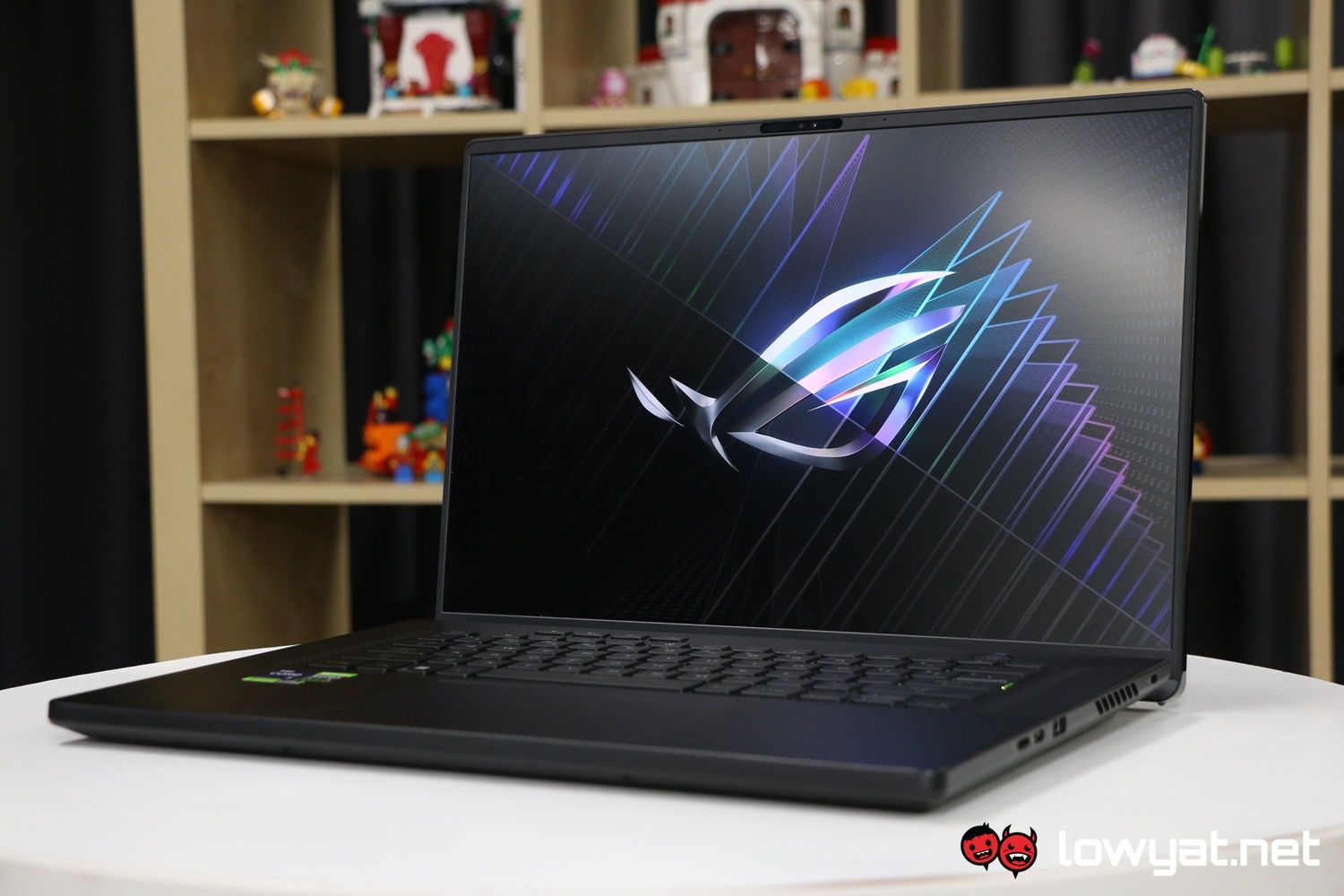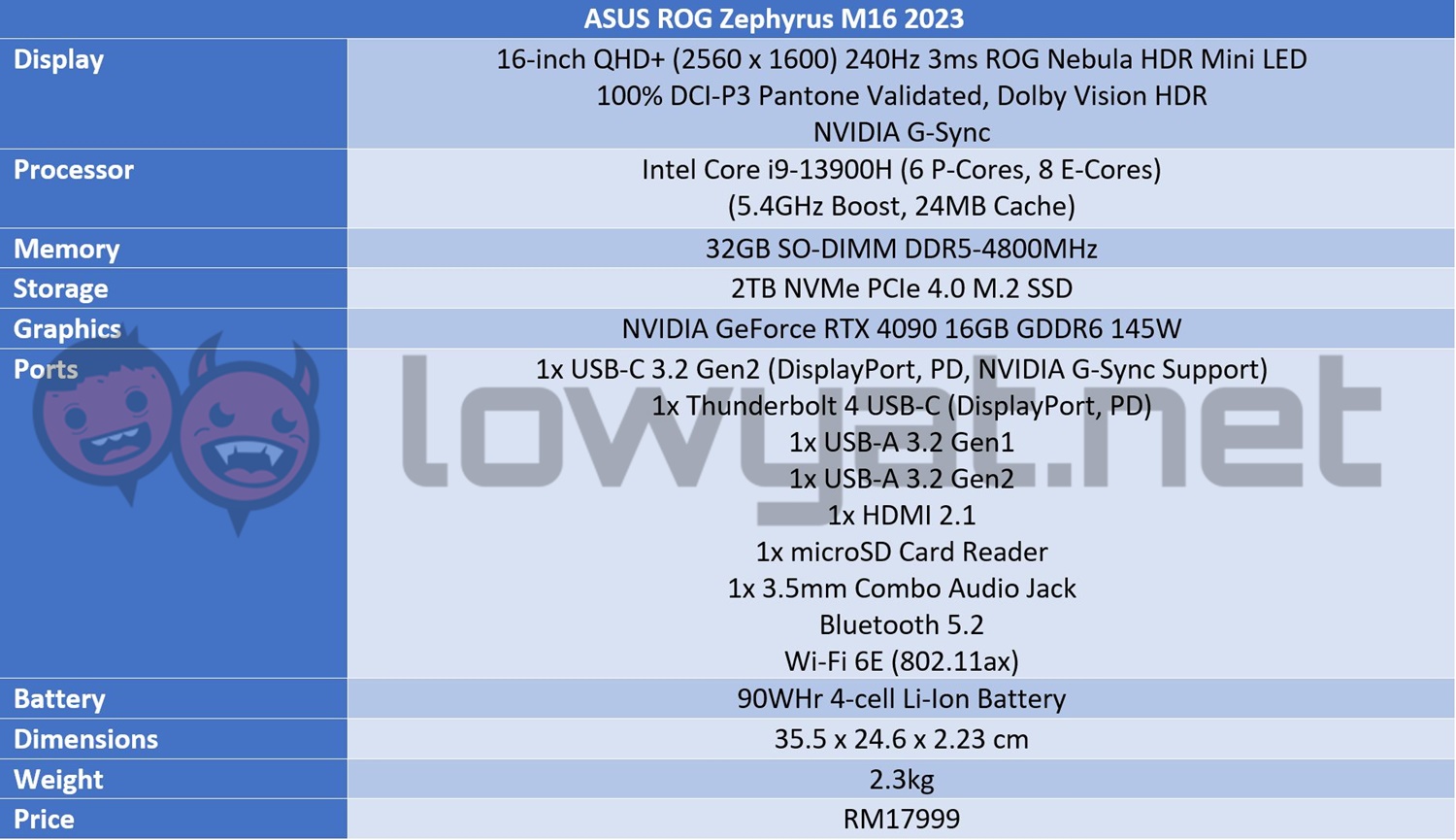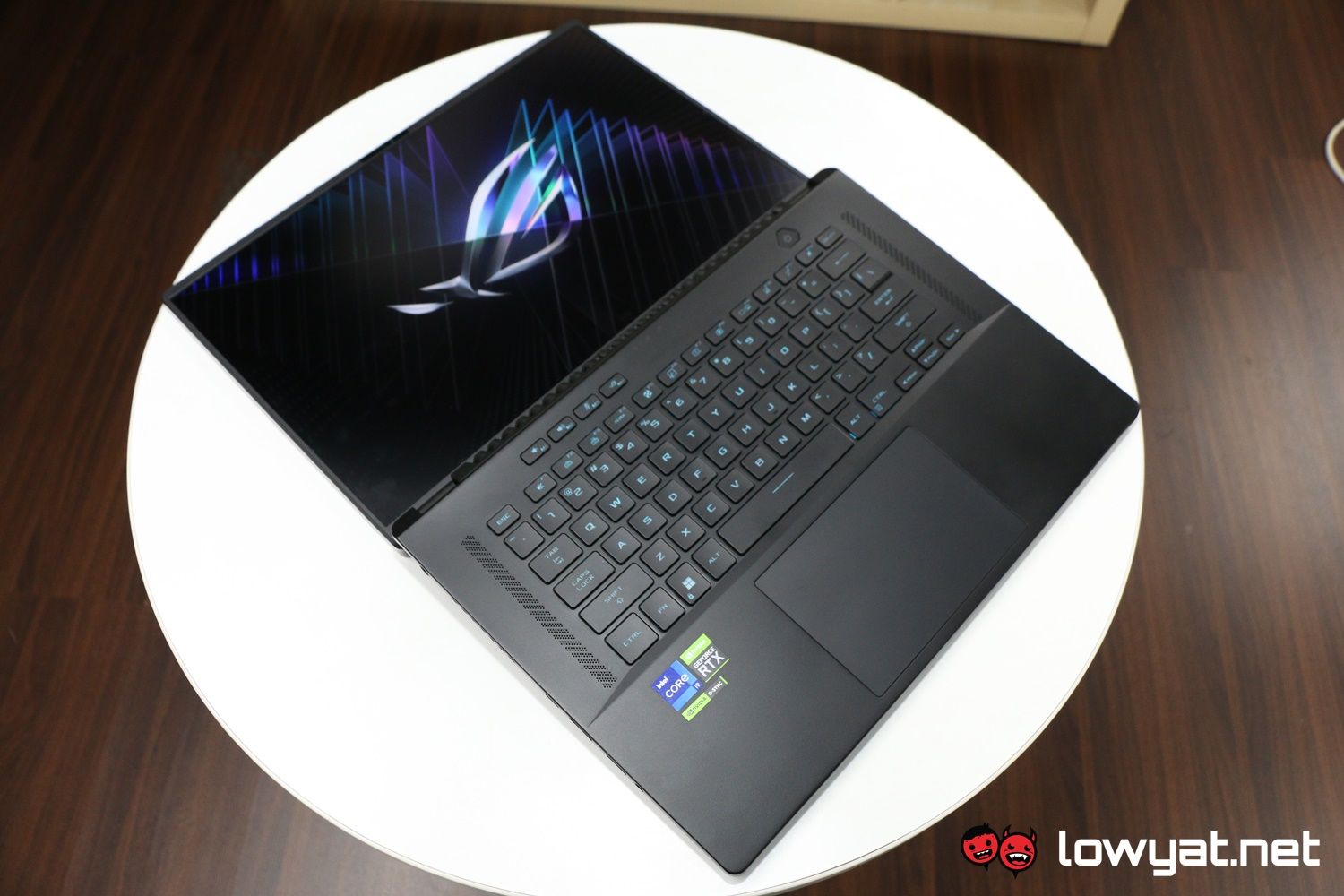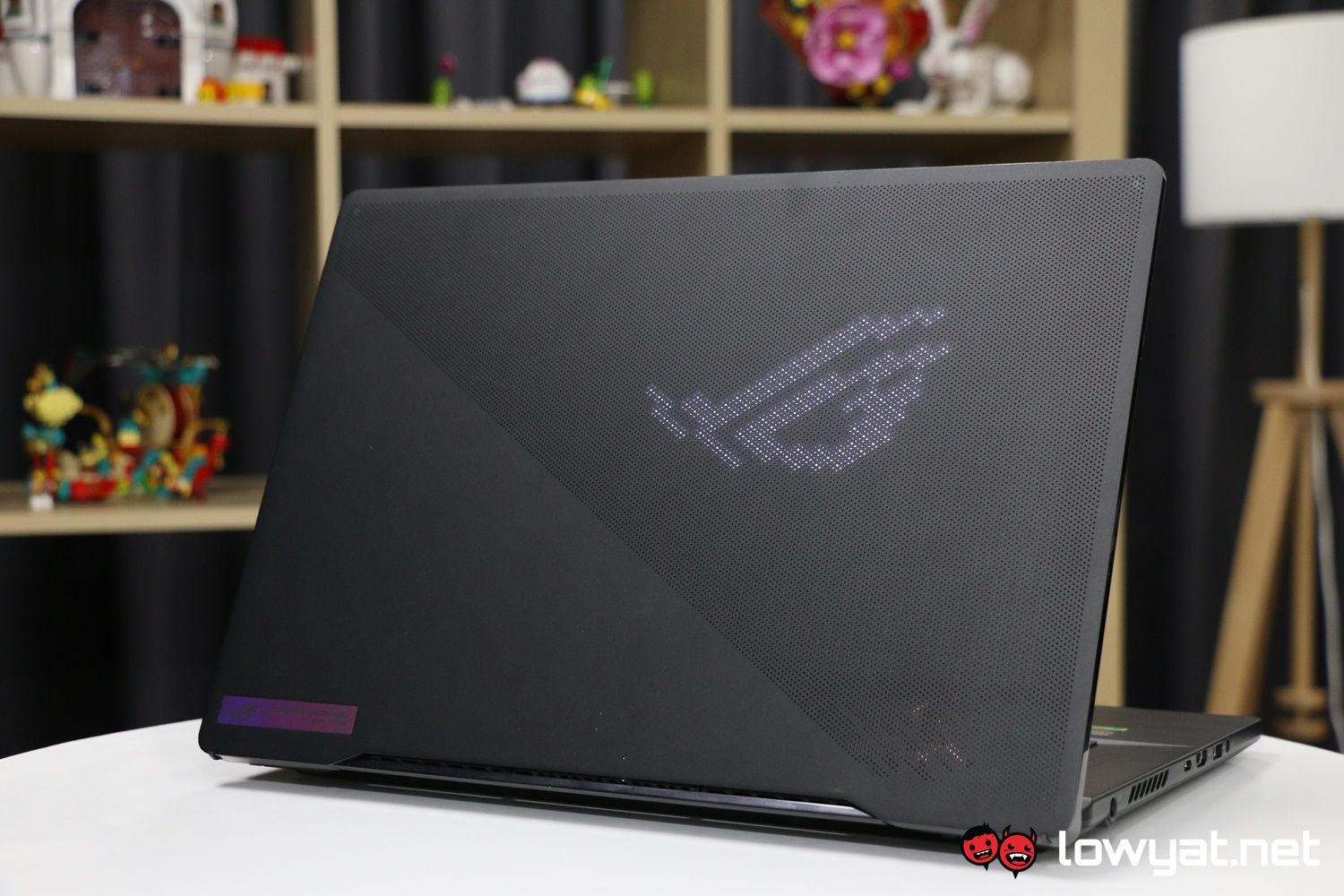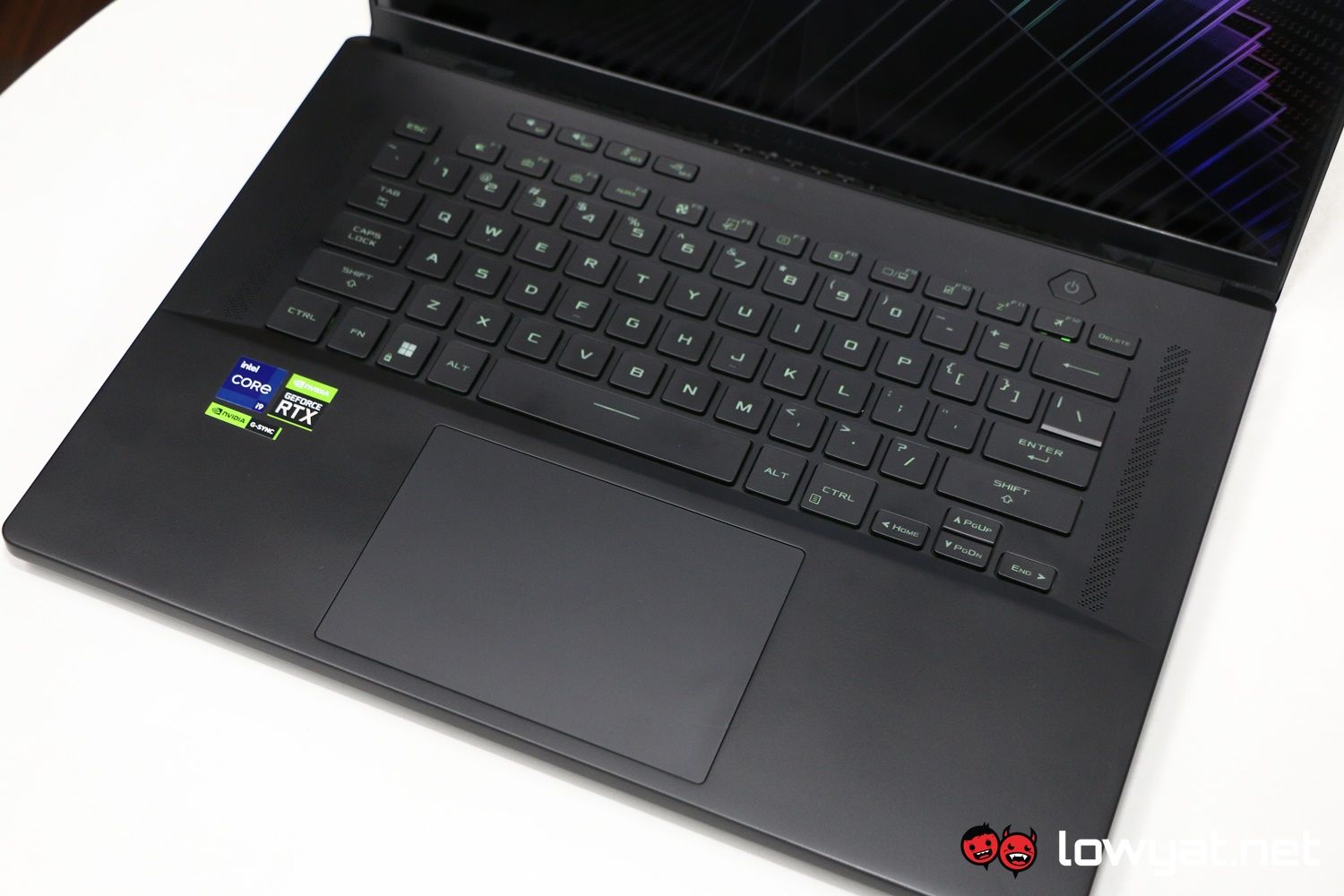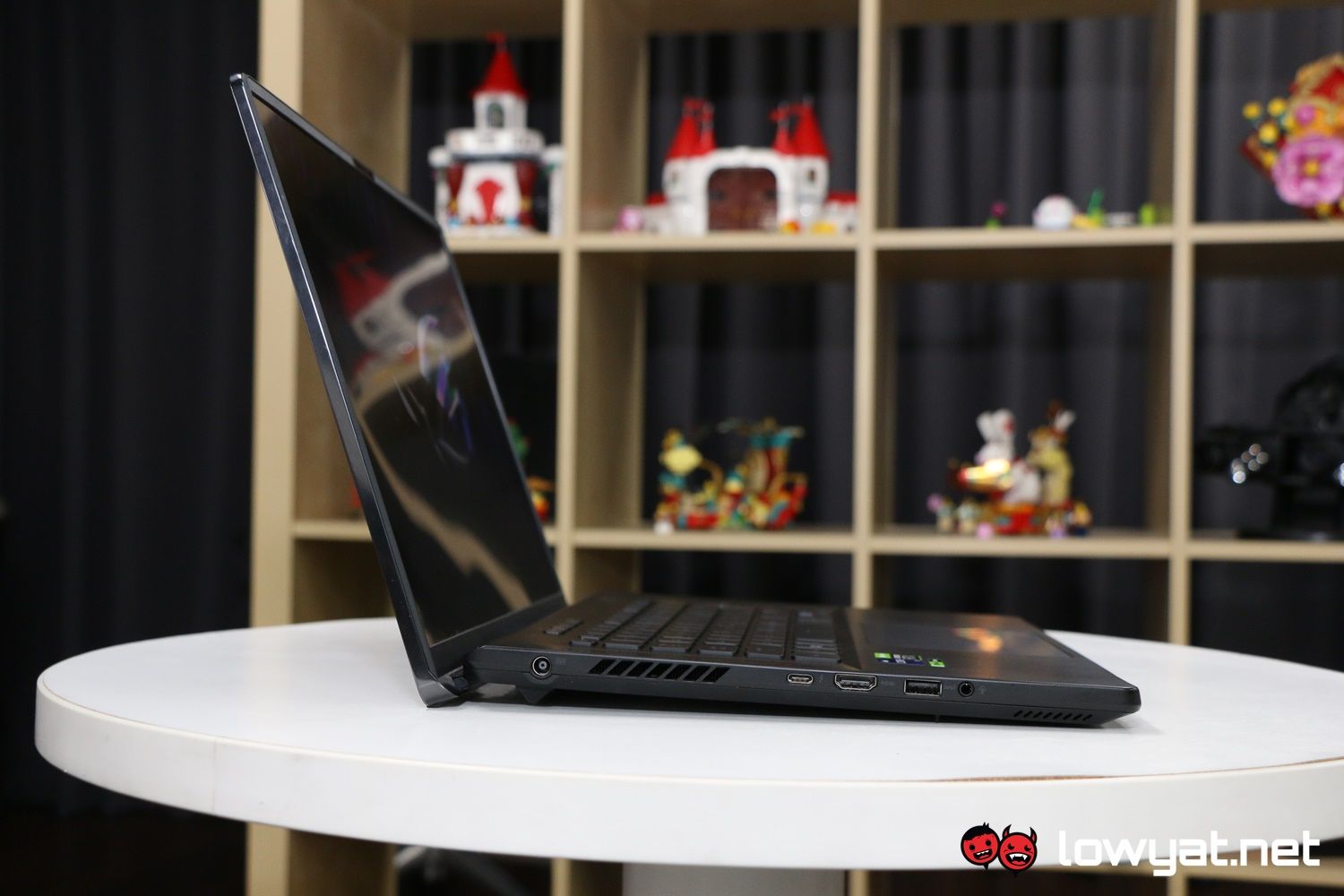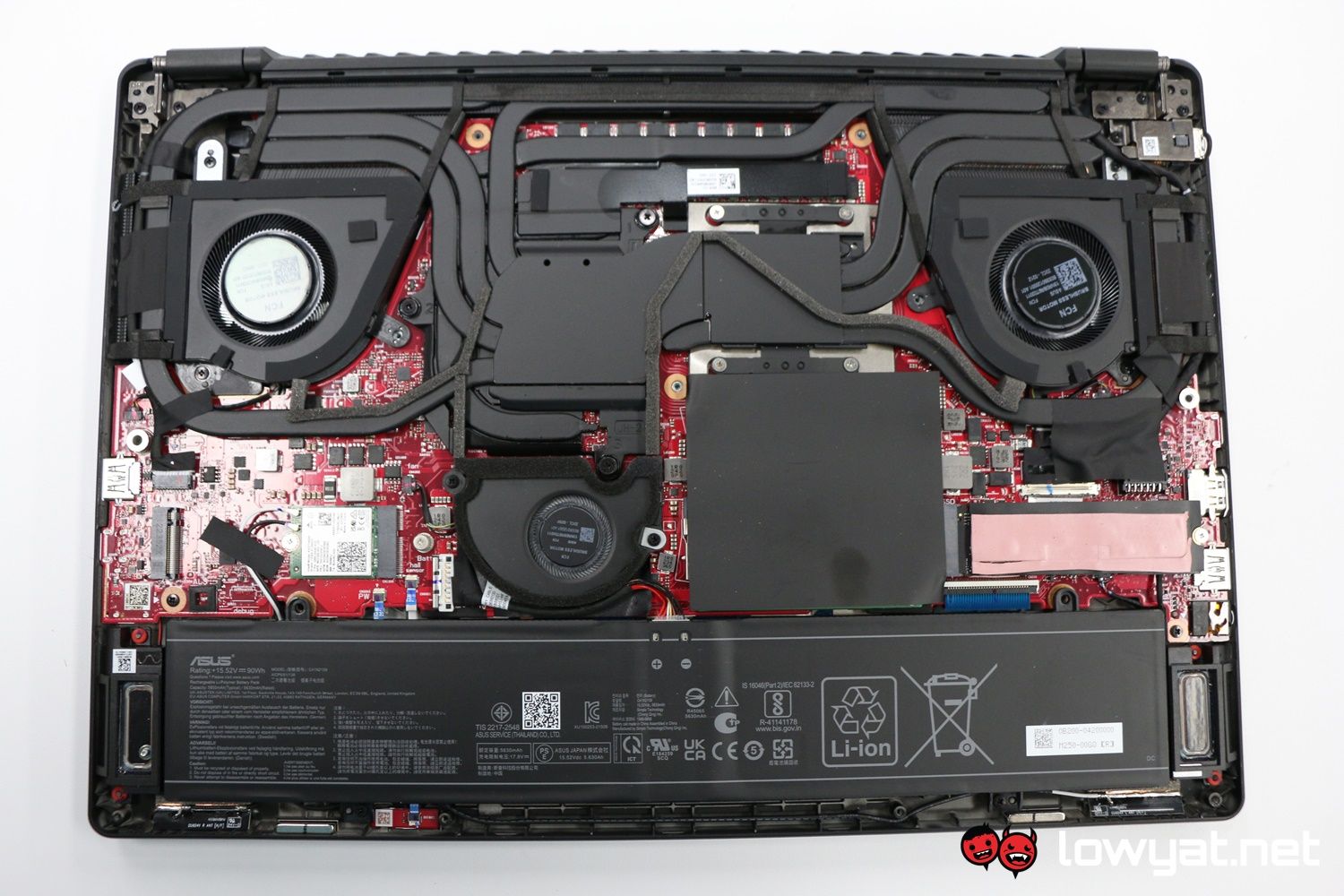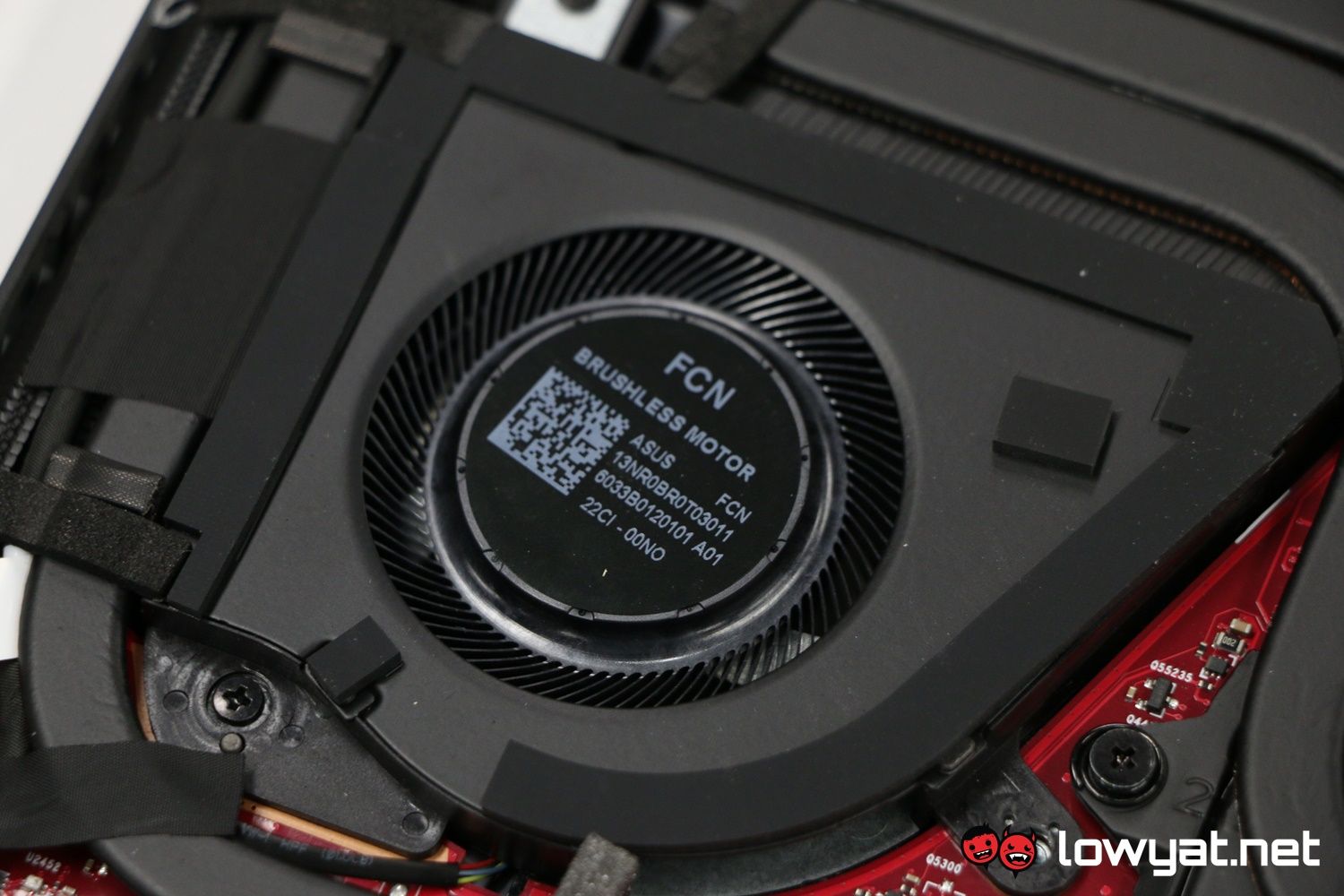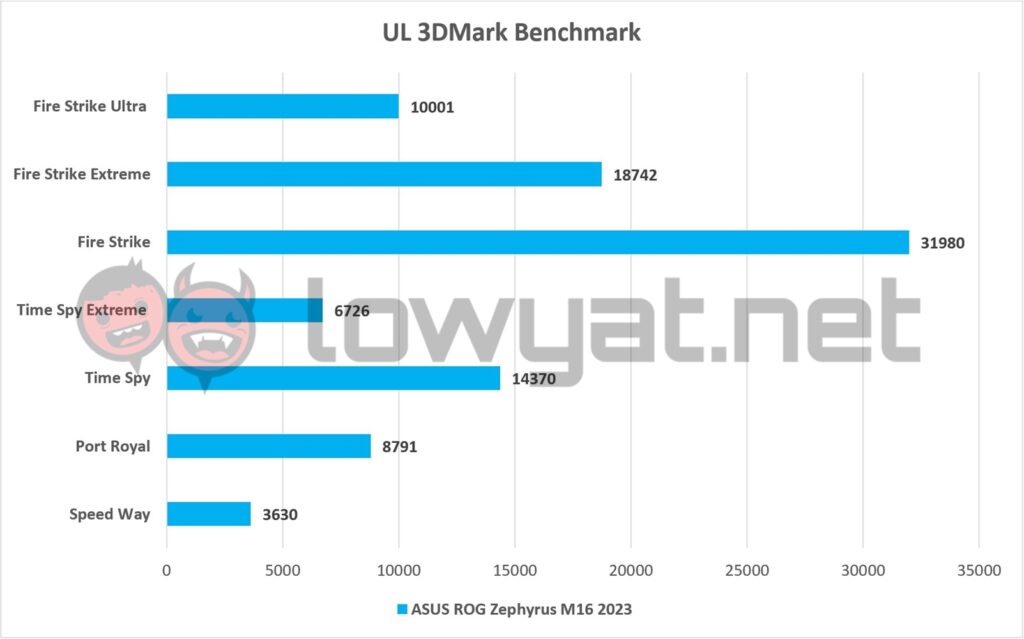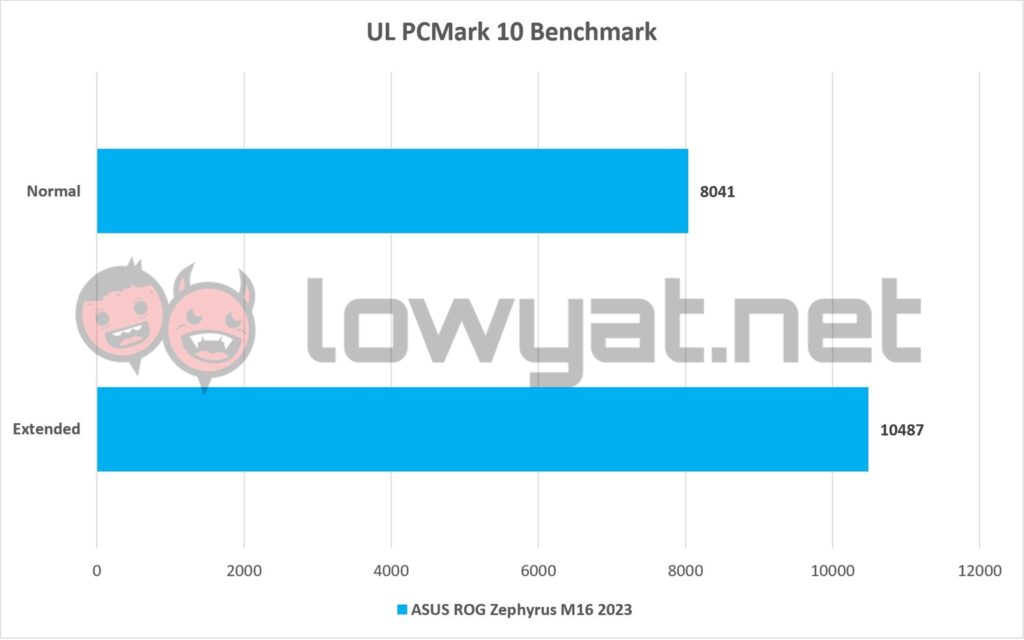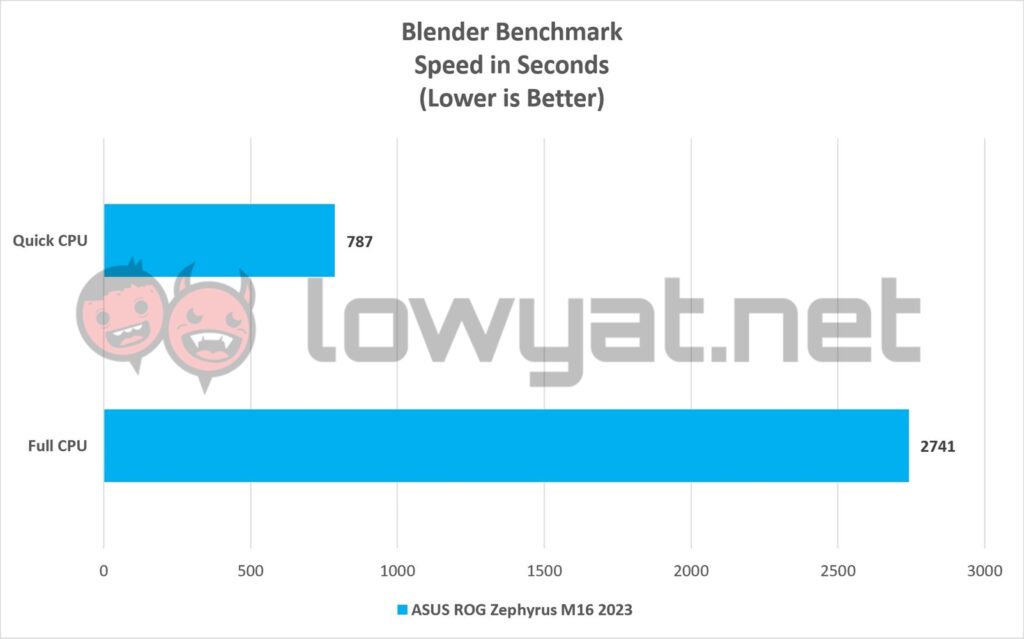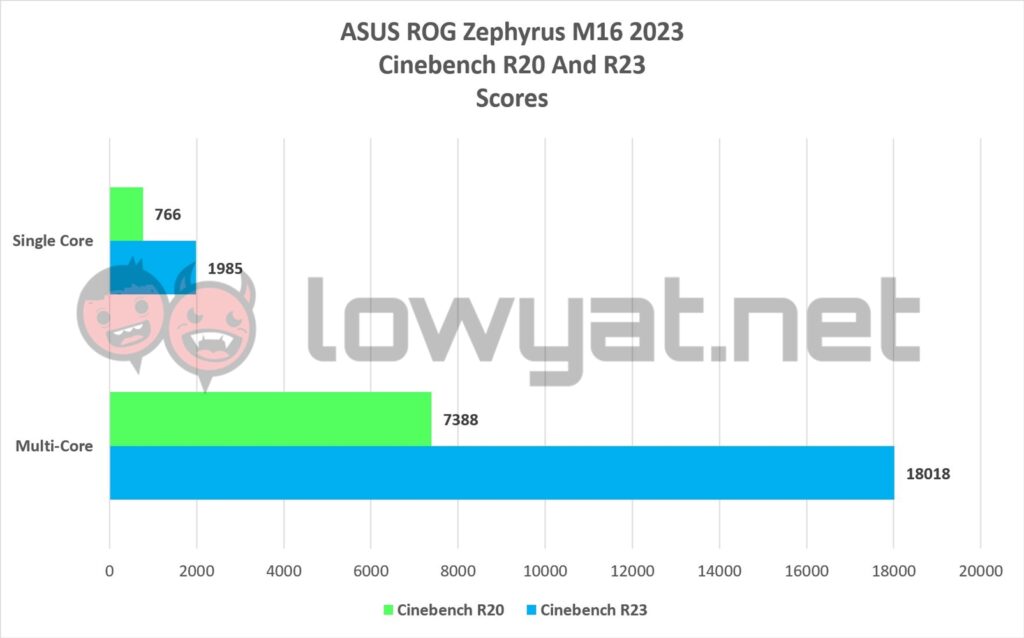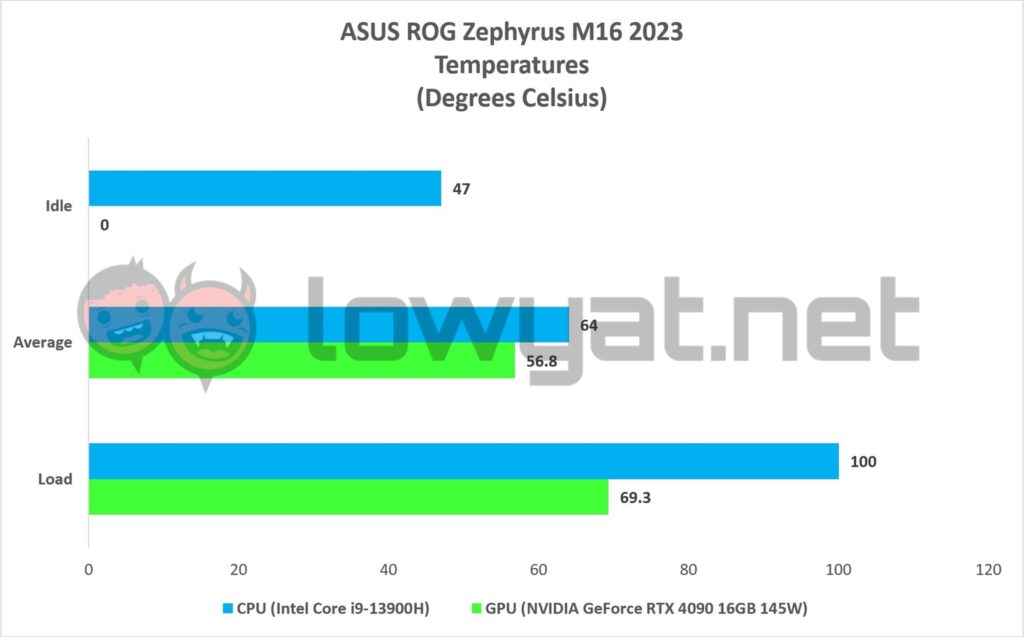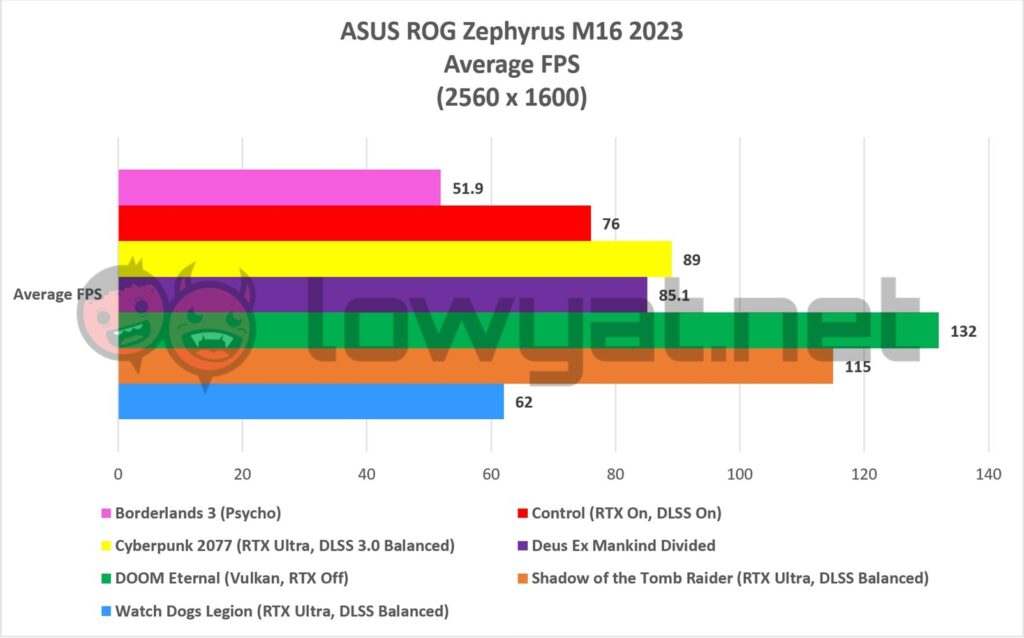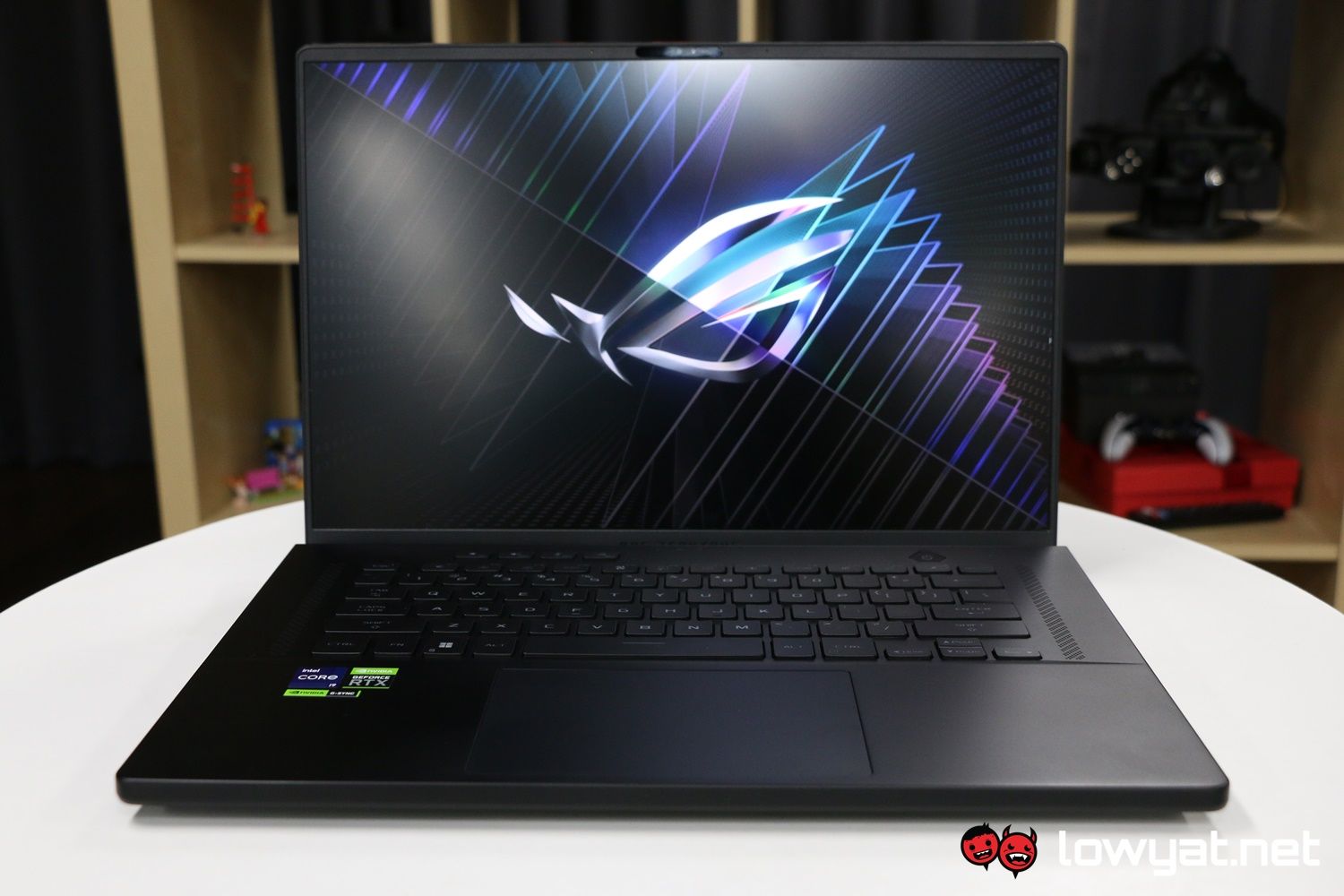The ASUS ROG Zephyrus M16 2023 is a gaming laptops that landed this year that carries the distinct privilege of being one of only a handful of laptops that can rock an NVIDIA GeForce RTX 4090 discrete GPU. Couple that with the Intel 13th Gen Core i9-13900H that is the default CPU, and you essentially have what is a very, very powerful portable gaming machine.
Seeing how the M16 2023 is now in our lab, the conclusion we came to at the end of our review is mildly surprising, to say the least.
Specifications
Design
The shape and design of the M16 2023 largely remain the same, but ASUS has made some tweaks to it, provided you pay close enough attention. The LED indicators in the middle of the laptop, for starters, are less noticeable when you swing the screen open beyond 90 degrees. In this instance, I find myself craning my head forward every so often to see if the LEDs are on, so much so that it became a habit after a while. The position of the DC plug-in port has also been repositioned – it’s now situated at the edge of the M16 2023, which makes more sense than when ASUS decided to have in the middle. For another matter, the ventilation grilles look more rugged, albeit smaller than its predecessors.
Brighter QHD+ panel with an even higher refresh rate.
As for the screen of the M16 2023, it’s a 16:10 aspect ratio display with QHD+ (2560 x 1600) resolution and a maximum refresh rate of 240Hz, but more importantly, it’s a mini LED panel using ASUS’ own branding, ROG Nebula HDR display, with a peak brightness of 1100 nits. That is an over-the-top number and clearly above the industry standard and throughout my review, I actually have to reduce the brightness level down to 50%. The refresh rate has also been bumped up from 165Hz to 240Hz, although there aren’t a lot of AAA titles on the market that would even be able to hit that number in frames and stay above it.
Of course, it’s hard to ignore the other physical feature and new addition to the M16 2023, and that’s the Anime Matrix LED panel at the back of the screen. Again, the feature doesn’t provide any inherent benefit, be it gaming or work efficiency, but it is still an eye-catching feature that provides a level of individuality. And yes, you can customise what is shown on it, via the Armoury Crate app that comes pre-installed on it.
The build of the M16 2023 is, in a word, solid. There’s virtually no flexing from the chassis’ base, no matter how much I push down on the area around the keyboard. The edge of its display does, however, show some flex with I attempt to twist it, but still remains taut to a point that I can confidently describe its sturdy. Speaking of the display panel, you’ll find the laptop’s webcam at the top of the bezel but more importantly, it is also Windows Hello-compliant but as a trade-off, the power button no longer doubles as a fingerprint scanner. Circling back to the chassis, it should be noted that the surface is a real fingerprint and oil magnet, and given the laptop’s darker grey motif, any smudges are glaring.
The M16 2023’s keyboard also has per-key RGB LED underneath, although it is still nowhere near as flashy as Razer’s. By comparison, these still look more muted, dim even. Compared to its predecessors, though, the key switches feel a little more linear, less tactile if you will, with a moderate amount of key travel.
As it is with the majority of ASUS ROG laptops of this calibre, the M16 2023 is heaped with a healthy number of ports and because this is an Intel-powered machine, one of the USB-C ports is Thunderbolt 4. One physical feature that isn’t present or rather, has been removed in its entirety, is a dedicated LAN port. For that matter, the displacement of each port is more well-proportioned, with each side of the laptop getting an equal number of ports, instead of bunching them all to one side.
User Experience
Let’s start this section off with the performance of the M16 2023. As you’d expect from a laptop fitted with an NVIDIA GeForce RTX 4090 mobile GPU and Intel’s top-tier 13th Gen Core i9-13900H mobile series processor, plus a healthy 32GB of DDR5 RAM, I’m not left wanting when it comes to performance. Booting up the laptop is snappy, as is loading up apps and programs.
Powerful hardware doesn’t necessarily match up with performance.
When it comes to gaming, the M16 2023 is very clearly in its element, but not without its own set of drawbacks. For the majority of games I run on it, the experience is practically fluid, with framerates staying above the 60 fps mark, save for one or two titles. However, what is a little disappointing is that I actually expect more from the GPU; NVIDIA has touted the RTX 4090 mobile to be its most advanced and most powerful mobile GPU to date, but as you’ll see in the real-world benchmarks graph below, I can’t help but think that the GPU could be much, much more. Honestly, you’d think with a 145W TDP, the GPU could push itself a little harder.
It’s not just the RTX 4090 either. Much like the experience I had with a 12th Gen Alder Lake laptop, the 13900H in the M16 2023 shows sign of thermal throttling. Even with ASUS’ improved cooling, the CPU is constantly hitting the 100°C ceiling every single time, to the point that I can actually feel the coming off the top of the laptop. As to how that translates into performance, I get these in-game stutters that are indicative of the CPU’s diminishing performance, brought about by the boiling point heat.
But enough about that, let’s talk about the ROG Nebula HDR display. As it usually goes with Mini LED displays, the brightness of the M16 2023’s display is like none other. Seriously, my personal Zephyrus G15 display pales in comparison to it. Having said that, keeping the brightness at 100% while daily driving it means that, sometimes, turning it on in the morning to check my emails and work feels like having a flashbang go off on my eyes. That aside, having a mini LED means better colour accuracy and contrast – blacks look deeper, whites are brighter, and the entire colour spectrum pops out in front of my eyes.
Moving on, there is another caveat with the M16 2023: accessibility. Again, unlike past Zephyrus models, ASUS seems to have made it slightly more difficult to gain access to by placing two additional screws directly underneath one of its rubber stands. Why they did this, I don’t quite know, but in order to get to them, you have to remove the little stubs that sit on top of them. In my opinion, it’s highly unnecessary and only acts to hinder access to the laptop’s base.
Poor battery life plagues this laptop.
Then there’s the battery life of the M16 2023, an avenue in which this laptop is utterly lacking. Even with the massive 90Whr battery, I’m looking at an edge longer than four hours, and I count myself lucky if I can get it to last for five. Honestly, this endurance isn’t bad, it is outright horrifying. If I were to finger a suspect, the component that’s to blame here isn’t even NVIDIA’s GPU; it’s Intel and its 13th Gen CPU, and that’s not a good sign.
Let me be clear – ASUS is not the one at fault for the M16 2023’s crappy battery life – it’s probably Intel, and worst off, it’s an issue that has persisted since its 12th Gen Alder Lake mobile series. As a quick primer: Intel’s previous and current generation CPU lineup distinguishes itself from AMD’s by having two distinct types of cores: P-Cores and E-Cores. As a simple explanation, the latter cores are the ones that are supposed to help stretch out the battery life of a laptop. However, it is becoming exceedingly clear to me that those cores aren’t working as Intel intended them to, which leads me to believe that the chipmaker still hasn’t fixed the power efficiency problem with the 13th Gen series yet.
And that is to say nothing of the acoustics of the M16 2023. Sometimes, the laptop’s fans barely spin up, but most of the time I daily drive the laptop, it feels like a fighter jet warming up its engines. And God forbid that you start gaming with it because then it no longer sounds like a jet – it just sounds like a Banshee that has some personal vendetta against you.
Benchmarks
Competition
At this stage, there aren’t a lot of 16-inch available in the market that can take on the M16 2023. To be precise, there aren’t many models of the same calibre of power and price available in the Malaysian market, save for one brand and its model.
Razer Blade 16
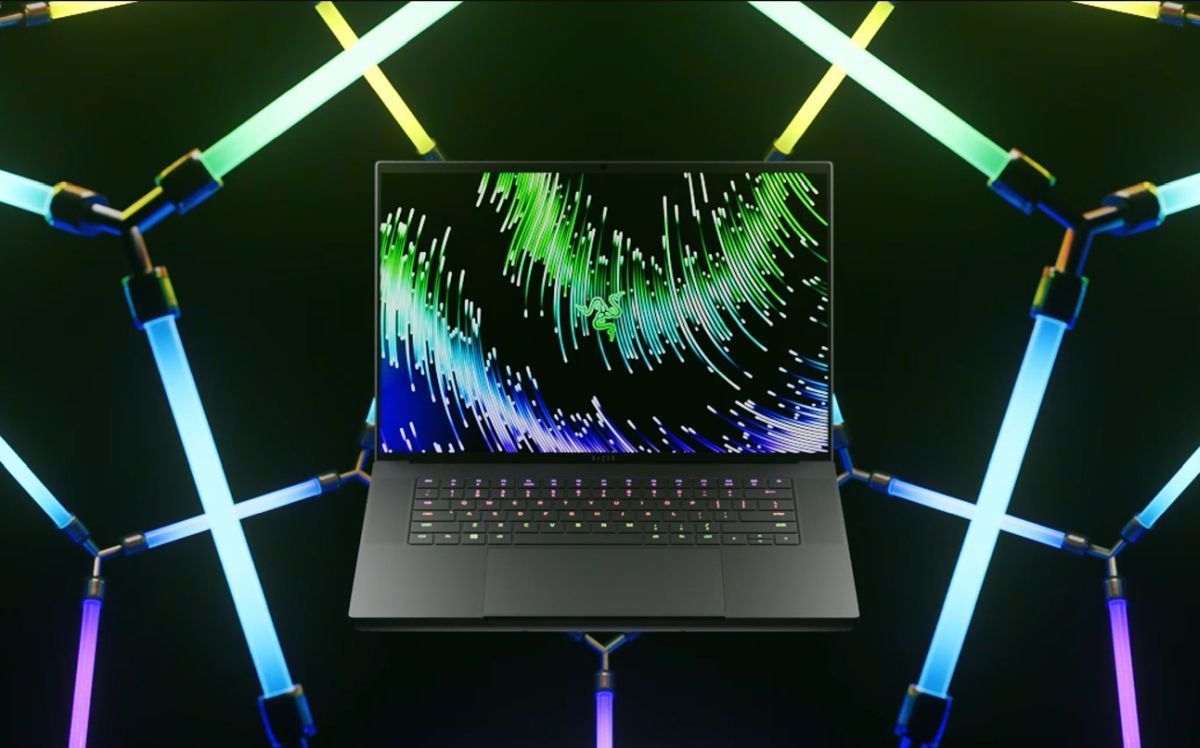
Considered the brand’s first 16-inch laptop model, the Blade 16 can also boast hardware that is on par with the M16 2023. Specs-wise, the laptop comes with a Core i9-13950HX CPU across all SKUs. For its GPU, it can be fitted from as lowly as an RTX 4060 and all the way up to an RTX 4090. But what really sets this laptop apart from its rival is that you can opt for a dual-mode display that allows you to choose between Full HD+ resolution with a 240Hz refresh rate or 4K+ at 120Hz.
Of course, the laptop isn’t going to be cheap: the base model starts off at around RM12000, while the top-specced SKU will set you back close to RM20000.
Conclusion
When all is said and done, the ASUS ROG Zephyrus M16 2023 is a laptop that has me standing on the fence. On one side, it is one of the most powerful Intel-based laptops ASUS has to offer, as well as being one of a handful of models that has the privilege of being able to house NVIDIA’s RTX 4090 discrete GPU. I would even go so far as to label it a 16-inch desktop replacement, crammed inside a 15-inch chassis.
The ASUS ROG Zephyrus M16 2023 is powerful but it’s lacking in endurance.
On the other side of the fence, the 13th Gen Intel CPU shows clear signs that the chipmaker has yet to solve its thermal throttling issues, and in addition to that, it still isn’t as energy efficient as the chipmaker had promised, which leaves the M16 2023 looking less of an alternative for the person that prioritises longevity, even for the casual gamer. For that matter, it’s also not cheap: the model I have in my hands retails for RM17999, while the base model of this laptop goes for RM10999. On another note, it’s not light either, weighing in at 2.3kg.
To condense this story into a couple of sentences – Would I recommend that you purchase the M16 2023 to someone looking for a portable powerhouse machine? Yes, I would. Would I recommend it as a machine that balances power and longevity? Not quite and I’d recommend you look elsewhere.
Follow us on Instagram, Facebook, Twitter or Telegram for more updates and breaking news.


